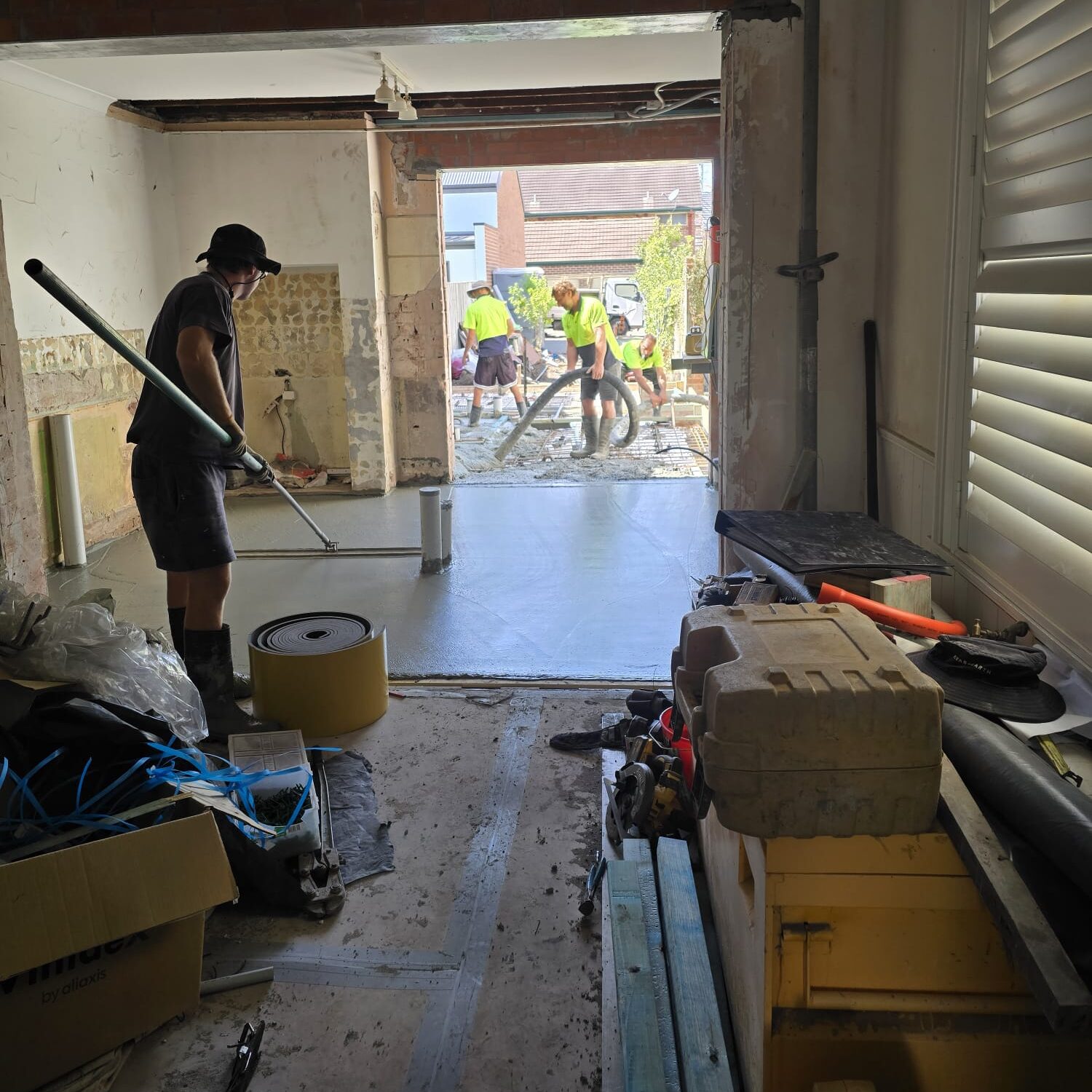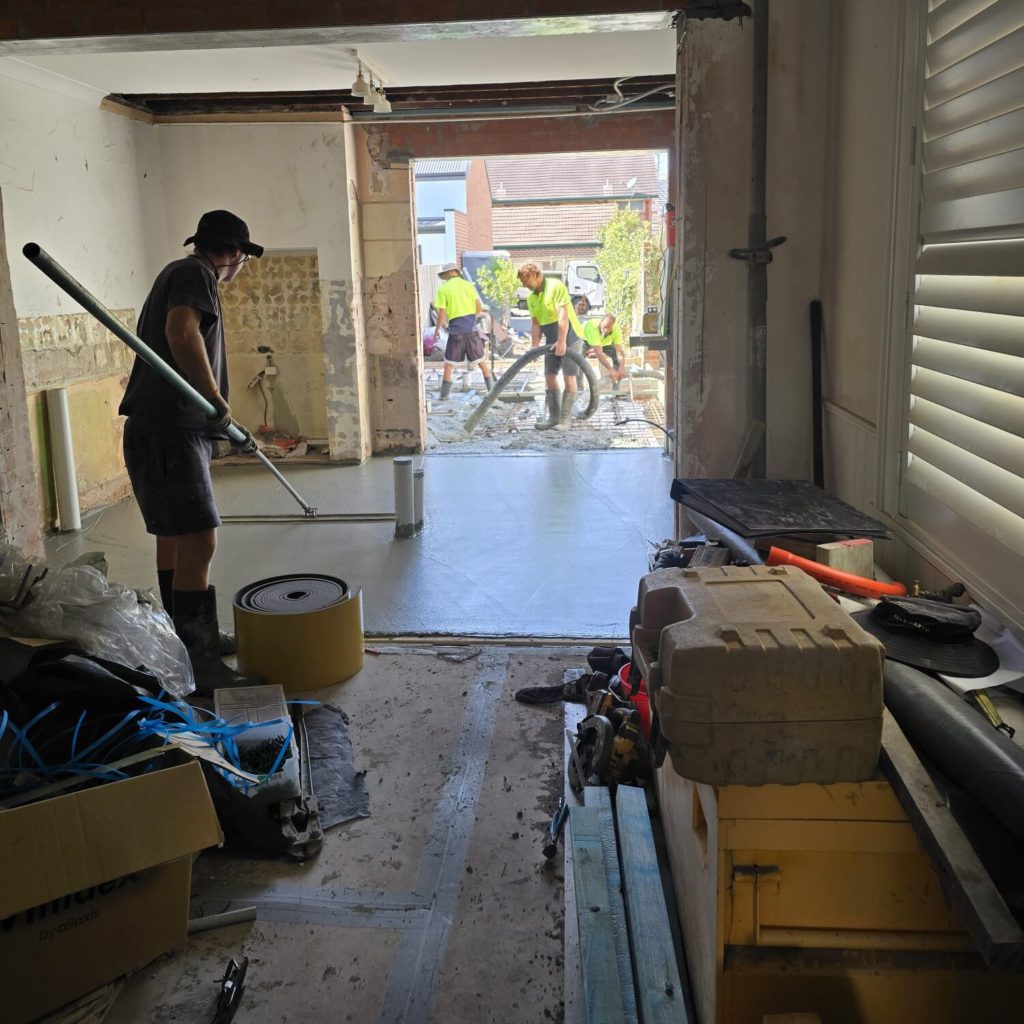Are you considering the installation of a new shed slab, creating a fresh driveway, or laying down footings for a home extension? You may have come across the term “cement pump.” But what does this term actually mean, and why is it vital for your construction project?
This comprehensive guide offers valuable insights into hiring a cement pump and details how using one can significantly improve your next concrete pour by making the entire process quicker, cleaner, and far more efficient.

Understanding the Differences: Cement Pump Versus Concrete Pump
Within the construction industry, a frequent misconception is the interchangeability of the terms cement and concrete. As a result, when people mention a cement pump, they are often actually referring to a concrete pump. This advanced machinery is meticulously designed to transport mixed concrete from a delivery truck to the precise location where it is needed for your project.
Concrete pumps offer numerous advantages in various construction scenarios, including:
- Delivering concrete to difficult-to-reach locations, such as behind a house or within narrow spaces
- Removing the necessity for wheelbarrows, which significantly reduces demanding physical labour
- Ensuring a cleaner and more efficient job site, minimising mess
It is essential to clarify that there is no specific machine solely dedicated to pumping cement, as cement is merely one of the components that make up concrete. Therefore, when you are preparing to pour a slab or establish footings, what you genuinely require is a concrete pump. For residential applications, a line pump is typically the most commonly used option.
When Is It Essential to Employ a Cement Pump?
Should you find yourself facing any of the following scenarios, it is crucial to consider the utilisation of a cement pump (more accurately referred to as a concrete pump) to save considerable time, energy, and minimise mess:
- Pouring a shed slab in your garden
- Replacing an existing driveway that has deteriorated
- Installing footings for a deck or an ancillary flat
- Working in tight access or confined spaces where manoeuvrability is restricted
In these circumstances, using a concrete pump will undoubtedly streamline your project. By opting for a pump instead of relying on wheelbarrows or attempting to pour directly from the truck, the concrete can be accurately delivered right to where it is required, even if that location is over 30 metres away from the road.
Key Steps for Effectively Hiring a Cement Pump (Concrete Pump)
Securing a concrete pump can be a relatively straightforward process, but ensuring that you make the correct choice is vital to avoid unnecessary complications. Here’s a straightforward yet effective guide to assist you in making the right decisions:
1. Define the Details of What You’re Pouring
Are you pouring a slab, establishing footings, or constructing pathways? Gaining a clear understanding of your project’s specifics will help you choose the appropriate pump size and configuration tailored to your specific requirements.
2. Accurately Calculate Your Required Pour Volume
To determine your necessary volume in cubic metres, you can use the formula (Length × Width × Depth in metres). If you are unsure about how to carry out these calculations, our knowledgeable team is more than willing to assist you and ensure you consider any potential overrun. Here is a guide on how to calculate the amount of concrete you will need.
3. Assess Your Access Points for Concrete Delivery
Is it possible to reach the site with a hose line? Is there adequate space for a concrete truck? It is crucial to discuss any access limitations so that we can plan effectively, ensuring smooth operations and avoiding any delays.
4. Schedule the Pump (Including Concrete Supply and Labour Services)
At Hunter Concrete Pump Hire, we provide comprehensive support that includes coordinating the concrete supply, labour, and the pump — all in one seamless package, enhancing your overall experience.
Your Local Experts: Dependable, Transparent, and Efficient Solutions
If you are located in Newcastle, Maitland, or the Hunter Valley, our team stands as your reliable local choice for professional and clean concrete pumping solutions. We offer mini pumps and line pumps specifically designed for residential projects. Our pricing structure is clear and straightforward, providing options for flat rates or hourly rates, ensuring you are fully informed about what to anticipate.
Whether this is your first project or you are a seasoned professional, we will guide you through the entire process, ensuring that everything is executed correctly and efficiently from start to finish.
Your Questions Answered: Commonly Asked Queries
Is it called a cement pump or a concrete pump?
While many individuals may refer to it as a “cement pump,” the accurate terminology is “concrete pump.” Cement is simply one component of the complete mixture used in construction.
What are the costs involved in hiring a cement pump?
The rates can vary based on the specifics of your job. At Hunter Concrete Pump Hire, our flat rate starts at $800, or you may opt to book on an hourly basis. We will assist you in determining the best option that suits your particular job requirements.
Can I rent a pump without ordering concrete?
Of course! However, we can also help supply the concrete mix if you prefer to have a single point of contact for your entire project.
Looking for Professional Assistance with Your Project?
Whether you are gearing up for a slab pour, a shed installation, or laying footings for a new build — we are here to assist you in identifying the right pump, calculating the required amount of concrete, and overseeing the entire pouring process to ensure everything proceeds smoothly.
The Article: Cement Pump: Understanding Its Use and Importance first appeared on https://writebuff.com
The Article Cement Pump: Key Insights on Its Use and Significance Was Found On https://limitsofstrategy.com


